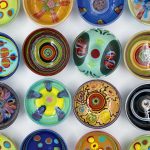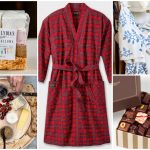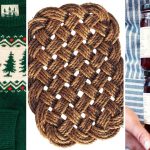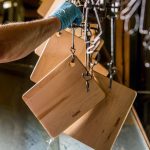Katrina Kelley’s Premium Kitchen Linens | Made in New England
Maine seamstress Katrina Kelley’s handcrafted linens balance everyday utility with uncommon artistry.
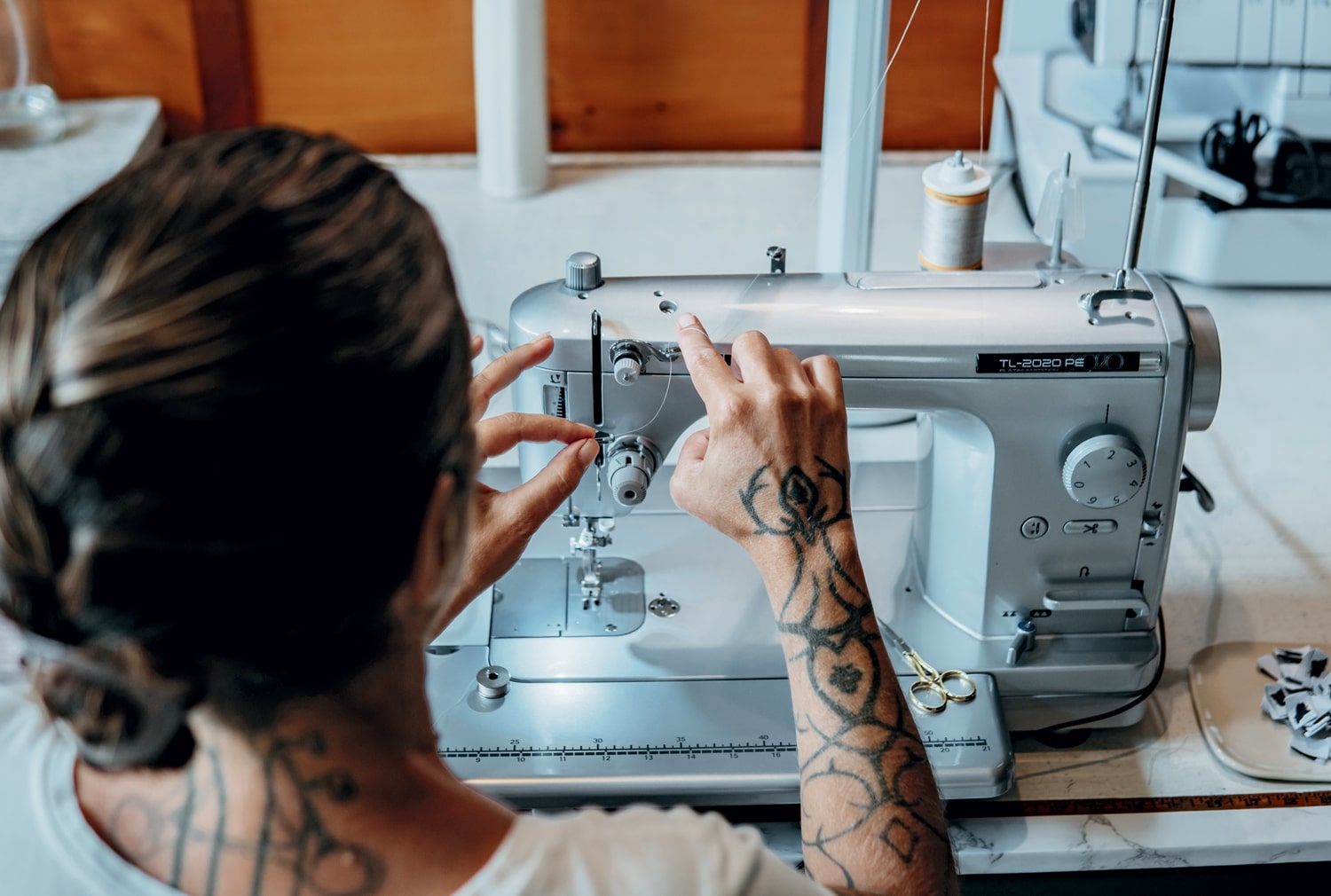
Coffee By Design | Portland, Maine
Photo Credit : Katherine KeenanThe fact that Katrina Kelley has a tattoo of a needle and thread snaking up the inside of her left forearm isn’t that surprising. She is, after all, the designer and sole seamstress behind the buzzy Newcastle, Maine–based Amphitrite Studio.
What is surprising is that she did the ink herself. “I got the tattoo machine as a gift for my 30th birthday,” says Kelley, 44, perched on a chair amid antiques and sewing equipment in her cozy home studio. “The focus on the art took away from the pain. It was a weird cancellation of properties, so it became just like drawing on myself.”
The more you get to know Kelley, however, this act of visceral self-expression starts to make sense. She has a relentless need to create, a need that drove her to launch Amphitrite Studio as an Etsy shop selling women’s linen clothing in 2012. Over time, Kelley shifted her focus to linen napkins, towels, tablecloths, and other home and kitchen textiles, a metamorphosis that became complete the December day in 2019 when restaurateur Erin French from the Lost Kitchen—yes, that Erin French—called to order aprons for her shop.
As luck had it, Kelley had been working on a café apron prototype. “I was like, Shut the front door,” she says, with a laugh. “They found me, called me, and wanted me to make something because they saw what I was trying to do … that was a big confidence-booster.”
Since then, the Amphitrite Studio aprons—long or short half aprons or full length with a cross-back in saturated earth and jewel tones—have become Kelley’s calling card. They’ve also helped put her on the map: The 2022 design book Remodelista in Maine included her studio in a who’s who of the state’s artisans. “The aprons are the biggest hit, but also the biggest pain to make,” Kelley says, explaining that they require her to switch between multiple sewing machines, plus iron between each step. Still, she says all this with a twinkle in her eye, as if she always knew her meandering path would lead her here.
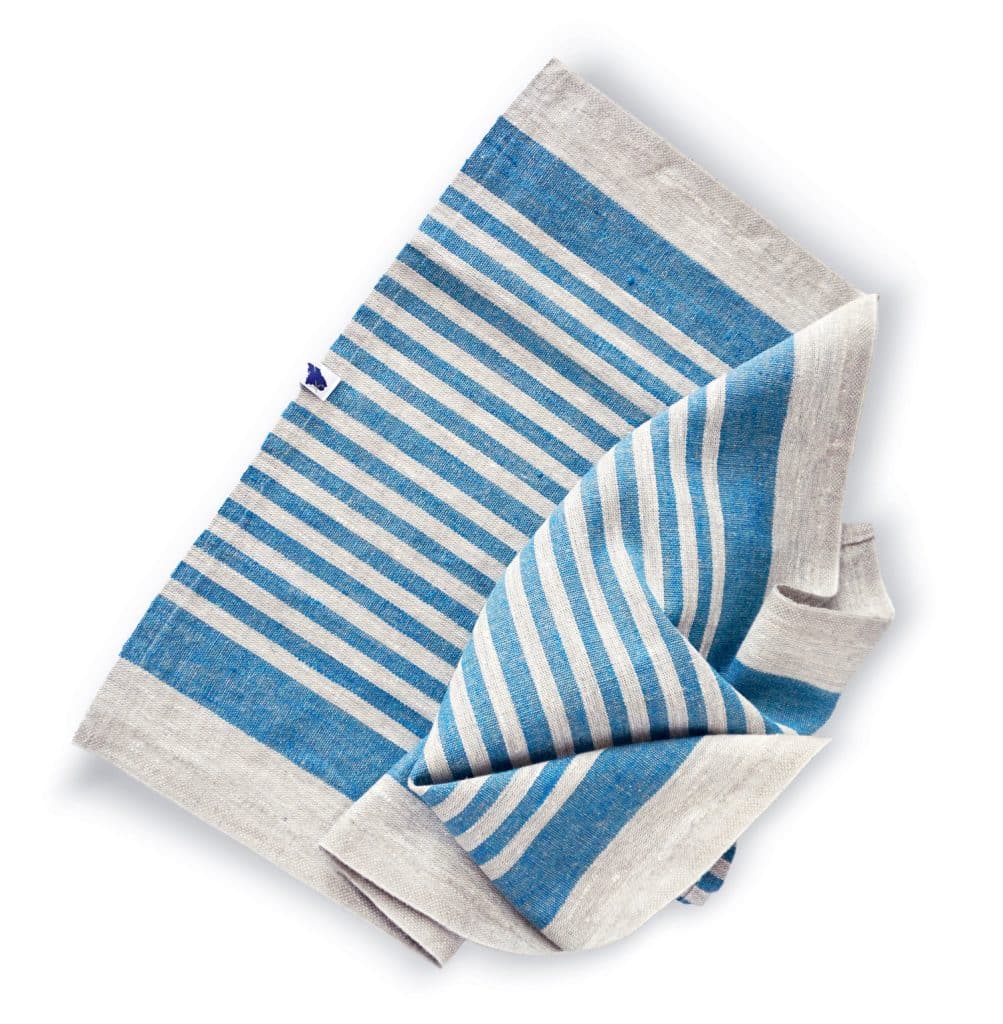
Photo Credit : Katrina Kelley
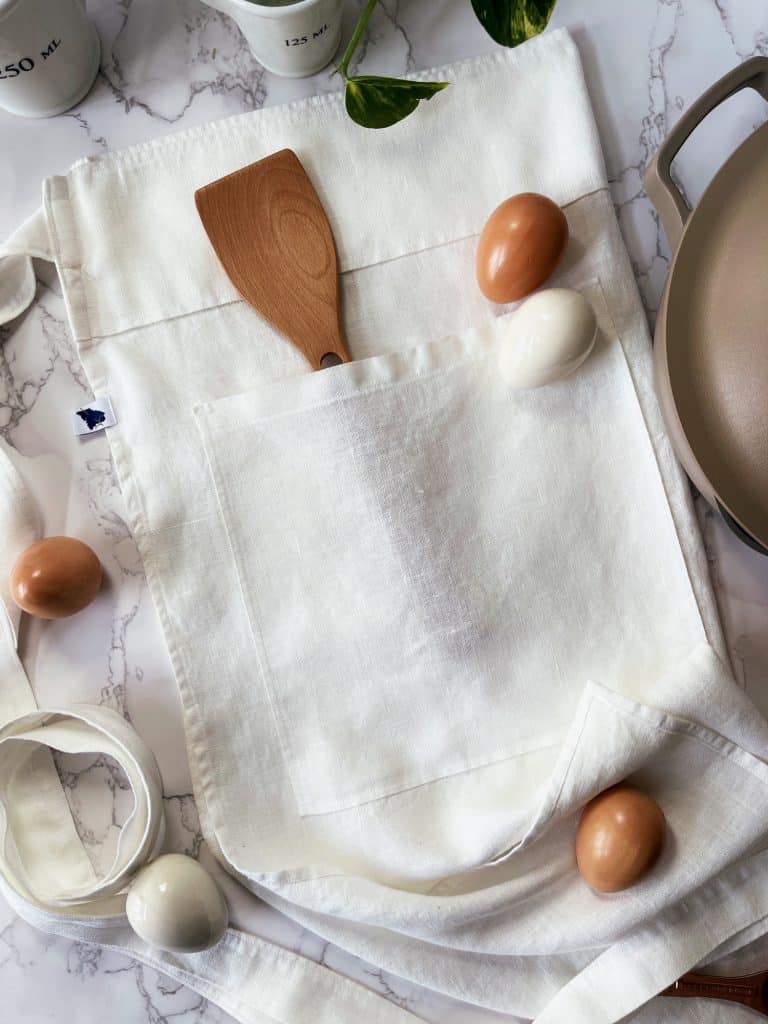
Photo Credit : Katrina Kelley
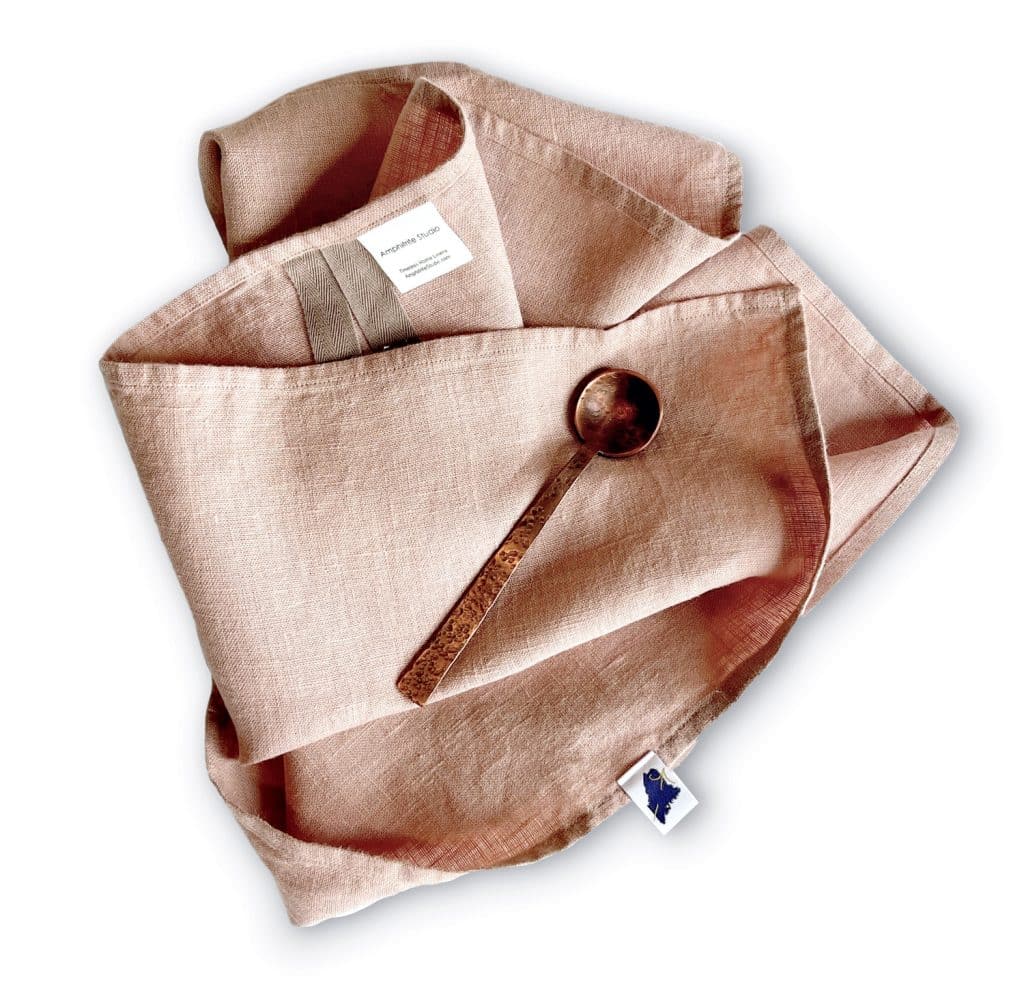
Photo Credit : Katrina Kelley
Kelley grew up in the Catskills, the youngest of four children. Her parents were hippies turned Jehovah’s Witnesses. Her mother, Kathlyn, retained an artistic streak and a homegrown ethos, making the family’s clothes, leading craft time, and teaching Kelley to sew at age 4. “My nursery was her sewing room,” she says. “I like to think that’s where I got my start.”
When Kelley was 14, she relocated with her mom to southern Maine, where the family had often spent summer vacations. She did homeschool and then trained to be a hairdresser, working as a colorist and also as a florist in Portsmouth, New Hampshire, before moving to a cabin in Damariscotta, Maine, in 2005. There, Kelley landed a job at a natural pet food store, which is where she met her now-husband, Jeff, a customer, who encouraged Kelley to start her sewing business in 2012 and get her online associate degree in business.
The name Amphitrite—the goddess of the sea and the wife of Poseidon in Greek mythology—was a no-brainer from day one, she says. “I originally chose it for the strong feminine vibe with ties to the sea,” she says. “I’ve always been drawn to the sea. When I was a kid, I actually drowned and was out for over a minute at Old Orchard Beach…. Ever since then, I’ve had a healthy fear of the ocean that’s turned into a reverence for its strength.”
It’s no surprise, then, that Kelley counts nature among her inspirations. Her art is also shaped by loss—including the loss of her brother Kieth Napolitan, an accomplished Portsmouth chef who died from an overdose in 2014. “My grief threw me into making things that other chefs could use,” Kelley says. “It was this natural progression of, this is where my heart already is. I’m going to keep making more kitchen-inspired things.”
Kelley spends her days measuring, cutting, sewing, ironing, and packaging her wares for shipping. She creates fresh patterns when inspiration strikes, like the vintage-leaning apron with thinner ties she’s currently working on. Looking to repurpose the fabric scraps and elastic left over from making masks during the pandemic, she designed one of the newest additions to her line: linen dish covers that are not only stylish, but also a sustainable alternative to single-use plastic wrap.
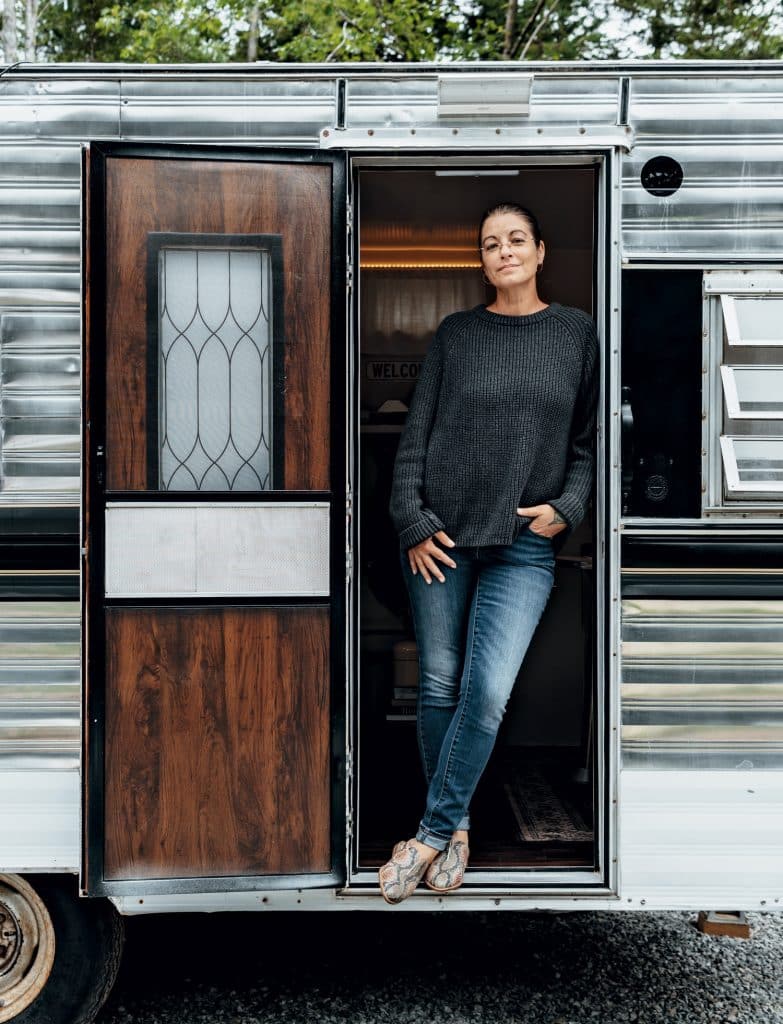
Photo Credit : Melissa Keyser
And in warmer months, Kelley opens her showroom—a solar-powered camper parked in her Newcastle driveway—to visitors. That’s also where she styles and shoots photos for her website, newsletter, and social media.
Amphitrite Studio is truly a one-woman show, and Kelley says she wouldn’t want it any other way. “I’m sure you can tell by looking around that I’m not a simple person,” she says. “This is what I live and breathe. I have no idea how to be anything but creative.” amphitritestudio.com
More Made in New England Textiles
Feather your nest with these New England–made textiles.
American Woolen Company
In 2014, American Woolen bought Warren Mills, the last U.S. mill capable of producing both woolen and worsted fabrics. Today, it not only sells these textiles to domestic designers, but also sews them into preppy throws. Stafford Springs, CT; americanwoolen.com
Anichini
Local craftspeople stitch fabrics from Portugal, Italy, Turkey, and other far-flung places into shower curtains, meditation pillows, and kitchen linens for this Green Mountain State company’s “Made in America” collection. Tunbridge, VT; anichini.com
Bates Mill Store/Maine Heritage Weavers
When the 151-year-old Bates Manufacturing Company shuttered in 2001, its former president, his daughter, and a few employees formed Maine Heritage Weavers to continue making the venerable manufacturer’s shabby-chic matelassé cotton bedspreads and coverlets. Monmouth, ME; batesmillstore.com
Bristol Looms
Set a sunny table with Maya Cordeiro’s coordinating brightly colored placemats, table runners, and napkins. Beyond the dining room, her handwoven baby blankets are especially sweet. Bristol, RI; bristollooms.com
Matouk
One of the last vestiges of Fall River’s textile-making past, the Matouk factory turns out crisp sheets and plush towels favored by celebs, high-end interior designers, and luxury hotels the world over. Fall River, MA; matouk.com




